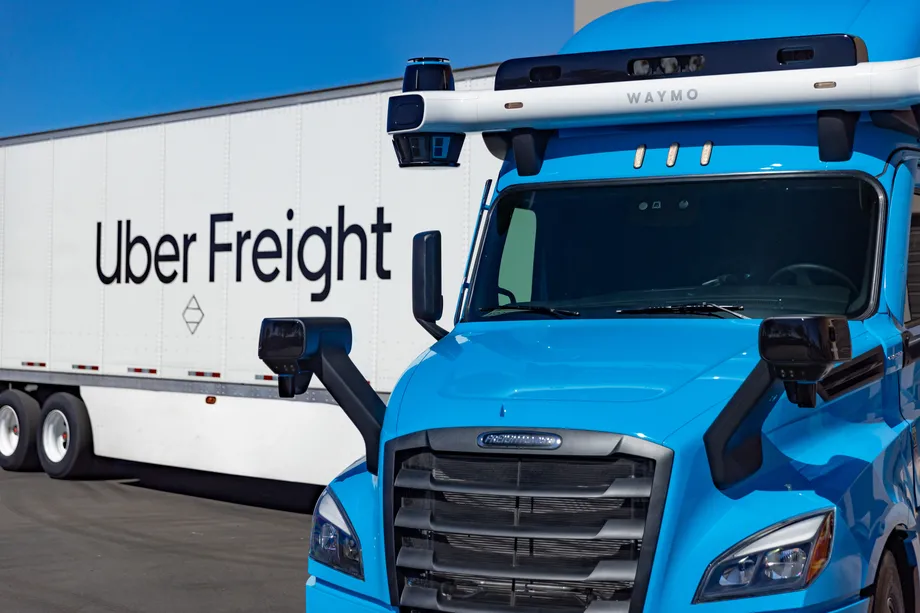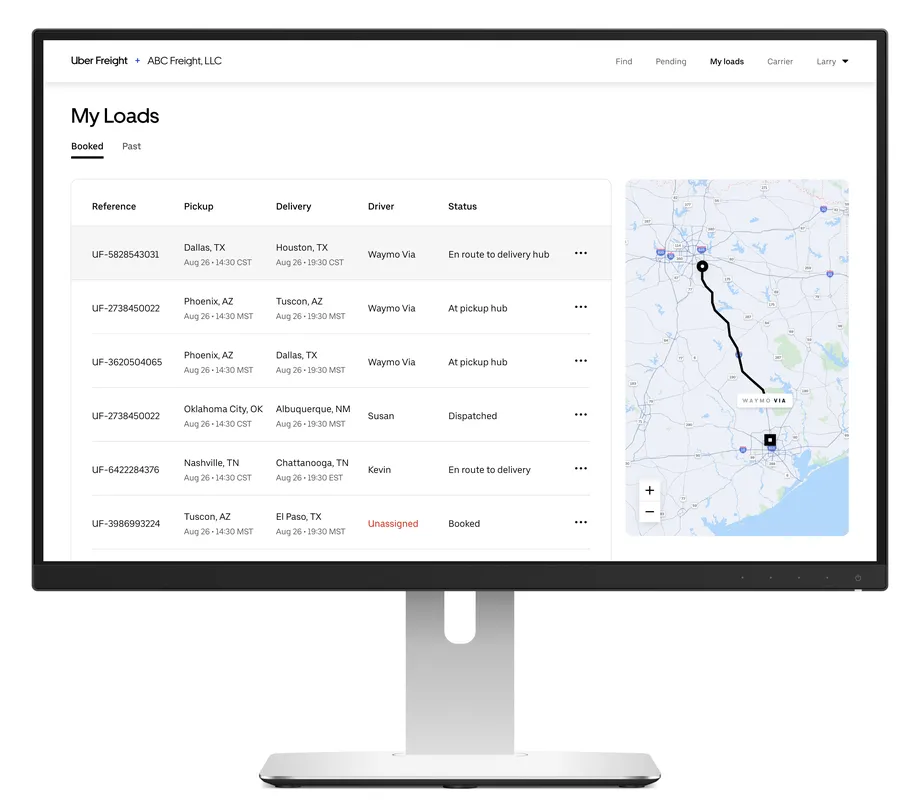It was reported on June 8 that on Tuesday, US local time, Google parent company alphabet's self driving truck Waymo via and Uber freight, the freight business unit of Uber, an online car Hailing giant, announced that the two companies have signed a long-term strategic cooperation agreement, which will help future customers deploy autonomous trucks more efficiently.

Waymo and Uber freight did not disclose when the paying customers could use the technology jointly developed by them, and declined to disclose the specific financial details of the cooperation agreement. However, they said that future waymo customers could use Uber freight technology to plan their fleet of autonomous and manual trucks more efficiently.
This multi-year partnership will be carried out in two stages. Waymo said that the first phase should be completed within this year. This phase involves waymo putting its Peterbilt truck test kit installed with waymo driver into Uber freight's network. In this pilot scheme, waymo will play the role of a carrier and provide its self driving truck service to shippers in the Uber market. Finally, waymo will adopt the "driver as a service" (DAAS) approach, and the operator will purchase Daimler trucks operated by waymo driver.
In the second stage of the cooperation between waymo and Uber, operators equipped with waymo driver trucks will be able to seamlessly join the Uber freight network. The two companies said that this would help operators expand their business scale.
Uber freight's software acts as an intermediary between truck drivers and shippers to reduce transportation costs and expensive empty mileage. Uber spent US $2.25 billion last year to acquire transplace, a logistics company, so as to accelerate its entry into the truck transportation market.

As technology companies compete to commercialize their products, there has been a series of integration in the field of autonomous trucks. The joint efforts of waymo and Uber freight are the latest example.
In recent months, waymo has made a series of transactions aimed at developing its newly launched freight business. Google said it had no plans to own or operate its own truck fleet, but would work with truck manufacturers, carriers and brokers to integrate its technology into the freight business.
Uber freight is not the owner of the fleet, but the two companies predict that their integration will "release much-needed capacity for shippers, improve fuel efficiency, provide opportunities for carriers to expand business scale, and ultimately simplify the global supply chain to benefit everyone".
Waymo described the cooperation as a "deep integration" of the products of the two companies, and outlined the way to deploy the self driving truck to the Uber network after commercialization. Waymo said that before that, it would use Uber freight and its own test fleet to better understand how autonomous trucks fulfill delivery orders.
Waymo spokesperson said that Uber freight and waymo via cooperated in a mixed freight mode, which still relies on manually driven trucks, but uses an automatic solution to help alleviate the industry pressure of the shortage of truck drivers.
Uber freight said in a statement: "our extensive, efficient and reliable digital network is crucial to the popularization of self driving trucks. Our advantage is that we have become the preferred network for self driving trucks, have scale and market expertise, and can deploy self driving trucks in a way beneficial to the whole industry."
Companies including waymo, tusimple holdings and Aurora innovation hope to sell self driving truck services to logistics companies and large retailers in the next few years. Under these business models, customers will purchase and own self driving trucks and pay royalties to technology companies according to mileage.
Waymo did not disclose how many test vehicles will be used in the initial pilot, but the company plans to launch the first fully autonomous truck in the next few years and start operation on the Texas I-45 highway between Dallas and Houston.
Waymo and Uber were once bitter rivals in the field of autonomous vehicle. In february2017, waymo sued Uber and its subsidiary Otto, a self driving truck start-up, accusing it of stealing trade secrets and infringing patents. Waymo asked Uber to pay $1.4 billion in compensation and publicly apologize, but these requests were rejected by Uber.
The case was heard nearly a year after waymo filed a lawsuit, but the two sides quickly reached an unexpected settlement agreement. Uber later admitted to using some of waymo's technologies and hoped to obtain authorization. Anthonylevandowski, a former Google engineer and Otto founder, was sentenced to 18 months in prison for stealing waymo's trade secrets, but was later pardoned by former president Donald Trump.
Neither company mentioned past contradictions. Uber has always been developing its own self driving trucks and has invested heavily in self driving technology. However, due to rising costs and the fact that Uber autonomous vehicle killed a pedestrian during its test in Arizona, it was forced to stop the self driving project. At the end of 2020, Uber sold the Department to Aurora, a competitor of waymo, which was founded by former waymo executives and holds nearly 43% of the company's shares. Aurora said in December last year that it had established a cooperative relationship with Uber freight. (small)